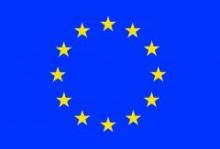
Europe, both West and East, is known for its keen interest in American jazz. Recently scholarship on the subject has shown that European commentators and musicians have, in turn, shaped American views of the music since its beginnings. In addition, almost every European country is now recognized in America as an autonomous, distinctive source of jazz expression. Exploring these national variations can tell us a great about the dissemination of jazz and the rich communicative possibilities of improvisation that may materialize in diverse cultural contexts.
Resources posted here by George E. Lewis and Wolfram Knauer tell of the fertile grounds for dialogue, as well as professional and racial tensions, between American and European musical communities who were interested in improvisation. Resources by Rasula, Lehman and Eric Lewis demonstrate from varying standpoints how the European reception of jazz-and even its misperception-is central for an understanding of modernism and post-modernism in the arts across continents. Dvinge argues that Europe's perennially thriving jazz festivals are and have long been sites for fusion of global and local identities, and that therefore "jazz may offer a way out of the either/or bind of the global versus the local." Givan analyzes the work of one the most brilliant, influential performers to emerge in Europe during the first half of the 20th century, Django Reinhardt, arguing that discontinuity, not unity, is the key to his improvisatory vitality. The reference works by Knauer and Villa survey resources on many individual European countries, emphasizing the diversity in European jazz.
